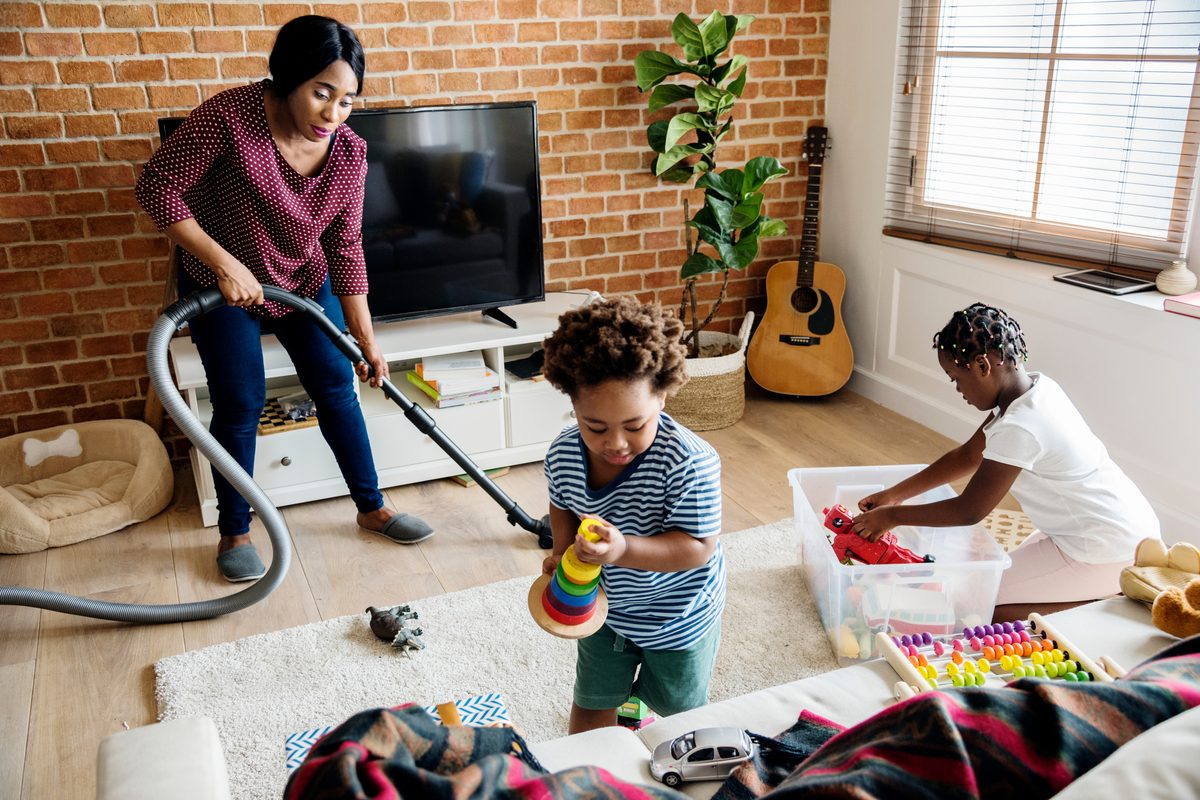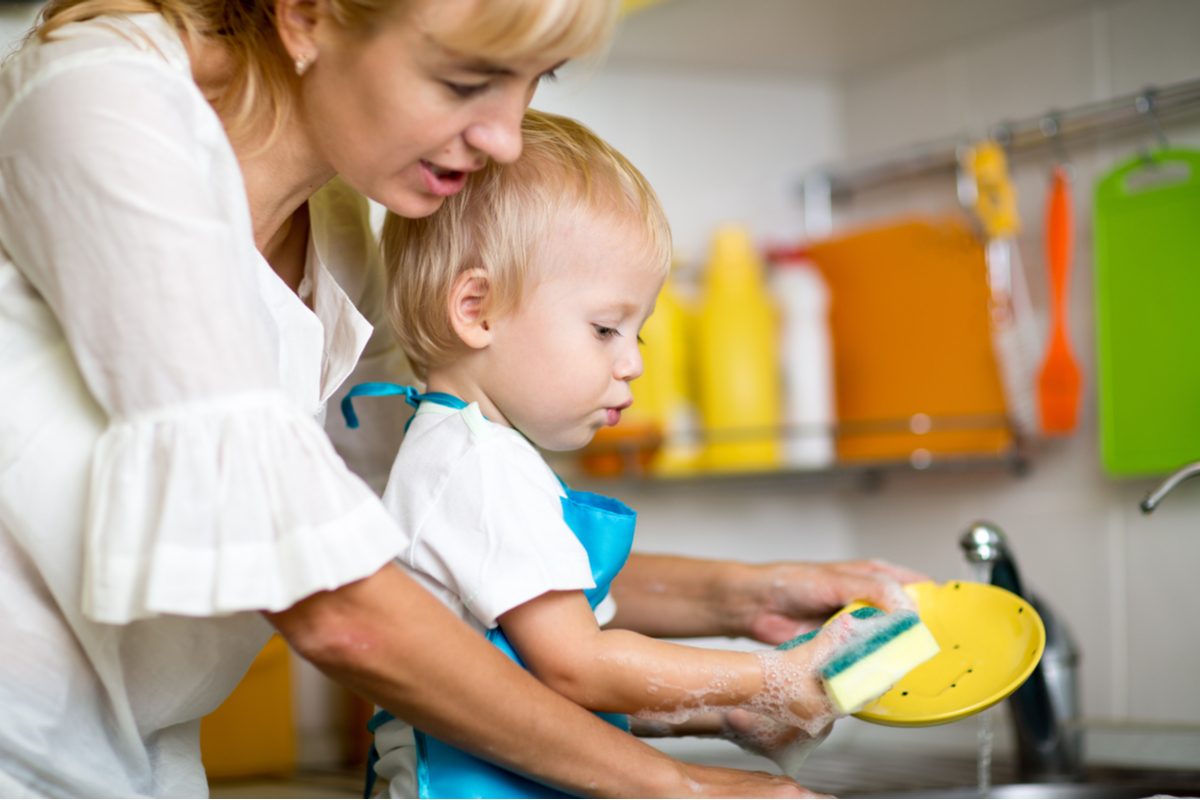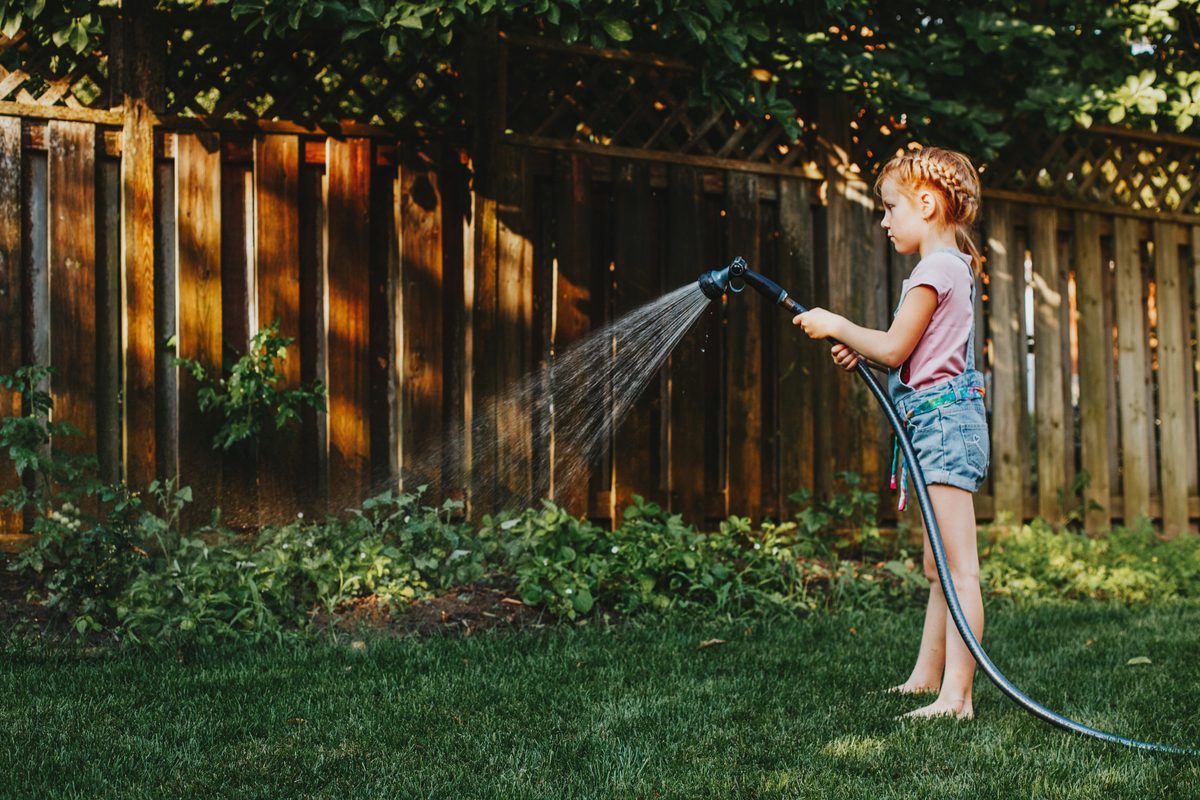
Chores are sometimes viewed as an afterthought of parenting, something that instills a work ethic (and gets the dishes put away) but nowhere near as essential as, say, reading every day.
But the truth is that the benefits of assigning chores unto children are plentiful: for one, they help mold youngsters in many ways, giving them a sense of self-discipline, belonging, accountability, and accomplishment, among other things. It also helps create a daily routine, which children crave for the security, structure, and additional self-discipline.
That’s a lot of benefit for one relatively simple set of tasks. Don’t let the opportunity pass you by to help your kids, and maybe make your household a little neater in the process.
Here are a few things to consider before you begin your chore list — as well as a long list of possible tasks you can assign your kids, broken down into age groups.
The earlier, the better. Even children as young as 2 years of age can handle small chores. Sprucing up their play area or putting away laundry can help establish expectations and routines in a toddler’s mind. It’s a way of letting them know early on that work is part of a healthy routine — and isn’t just for grown-ups.
Positive reinforcement. Doing chores for money isn’t the only way to reward a job well done (and more on allowances below). Letting your child know that his or her work is appreciated will drive home the idea that a job well done is its own reward — and won’t go unnoticed by authority figures.
It will also make it all the easier to get a child’s buy-in, both now and down the road as chores become more complex. And don’t worry if the play area isn’t spotless every time. The important part is that they made the effort and followed through on what they promised to do.
There is a flip side to this coin, however. When your kids refuse or forget to comply, don’t get too upset, but do offer a gentle insistence that they complete the tasks they agreed to complete.
Provide good oversight. Don’t offer vague directions, then forget about the chore until next week. After all, if it’s not important to you, why should it be important to your kids?
Show the child how to do it, then have them give it a try as you watch and offer any needed adjustments. When you’re both confident, let them handle the task at their own pace and in their own way. You can always step in again if need be — but don’t micromanage!
Should I give my kids an allowance?
Parenting experts agree that an allowance should not be the key motivator to complete chores, particularly among younger children.
Chores, particularly in the formative years, should be about contributing to the household and forming self-discipline. These attributes are valuable on their own merits and should be the prime motivators. Introducing an allowance too early can inadvertently send a message that money is the only worthwhile reason to do something. (There’s also the fact that money doesn’t hold much significance for very young children.)
It may make sense to offer an allowance as kids get older and chores become involved.
Chores for kids of all ages
You may not think so, but even the youngest are perfectly capable of handling basic chores, according to experts. Here are some ideas for age-appropriate chores, from toddler to teen. Keep in mind that older children can also perform any of the chores listed for younger kids.

Ages 2-3 years
- Put away toys or books in their right place
- Put dirty laundry in hamper
- Wipe away dust
- Help with a pet (brushing their fur, filling food or water dish)
Ages 4-5 years
- Clean spills or messes
- Get the mail or newspaper and bring inside
- Clear away dishes
- Make the bed
- Pull weeds, water flowers, pick up leaves, or other basic yard work
- Unload dishwasher (safe and nonbreakable items only)
Ages 6-7 years
- Prep laundry for washing
- Sweep floors or other surfaces
- Set the table
- Make their own lunch
- Rake leaves, pull weeds, other more complex yard work
- Clean bedroom or generally keep it neat
Ages 8-9 years
- Load dishwasher
- Put away groceries or other items
- Vacuum or mop floors
- Make meals or snacks
- Fold and put away laundry
- Sew buttons
- Peel vegetables or other safe food-prep tasks (supervise as necessary)
- Walk the family dog
Ages 10 years and older
- Unload dishwasher
- Clean bathroom
- Wash windows
- Wash car
- Simple cooking
- Handle all of his or her laundry
- Change bedding
As you consider your options, remember that your situation is unique, and as such so will your approach to chores and your children. If kids show a particular affinity for a given task and the task is safe for them to do, feel free work it into their routine. Remember to keep them accountable without being a nag or a scold. Once the habit has been formed it will make for a more industrious, efficient, and, yes clean household.



